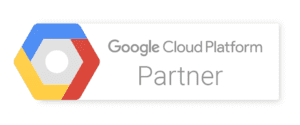Digital privacy is one of the most important issues our generation faces today. When Edward Snowden, former NSA contractor, released thousands of classified government documents to The Guardian in 2012, our eyes were opened to a new level of government surveillance we always knew was possible but never imagined to be reality. And it’s not just the government who’s snooping on us. Corporate data breaches and mass identity theft run rampant as major companies suffered massive data breaches and lost millions of customers’ private information that even included credit card numbers.
We have an inherent right to privacy, and just because we want our personal matters to stay personal doesn’t mean there is something to hide. Here are a few handy tools to keep your most precious data and online activity out of the hands of strangers and anonymous officials.
Tor
Tor is an open-sourced browser that uses a network of virtual tunnels to improve privacy online. Websites typically have the ability to track who visits or at the very least learn the general area the visitor is from, but not with Tor. Your identity is a secret online and the browser is even able to access a network of sites called the Deep Web, which are unreachable from normal browsers like Chrome or Firefox.
Great for: The user who wants to hide everything.
HTTPS Everywhere
This is a plugin that works with browsers like Chrome to ensure every site you visit is secure from unwanted eyes. There are basically two types of websites—http (open and vulnerable) and https (secure). Banking and financial websites will almost always use https by default, but not every site on the Web does the same. HTTPS Everywhere forces every site you visit into https so your browser traffic stays safe.
Great for: The user who connects to the Web via public Wi-Fi.
VPN
A Virtual Private Network, or VPN, is an online network or server, typically in a location other than where you physically are, that re-routes your browser traffic to look like you’re online from somewhere else. Services like Private Internet Access cost about $6 per month (and can be paid in anonymous currency like Bitcoin or even gift cards) and offer you more than a dozen locations to “appear from” around the world—anywhere from San Jose to Israel.
Great for: The user whose country blocks certain services like Netflix or a P2P sharing site.
Identity Theft Protection
Think of this as your fail-safe. Companies like Lifelock monitor your credit and activity to ensure no one is doing anything funky with your data in case your sensitive information does get out. These protection services will notify you of any suspicious activity and help contact the right people for any disputes.
Great for: The user who worries about data breaches and financial health.
iMessage
It’s not just Web browsers, your text messages are under surveillance, too. Big carriers like Verizon and AT&T have been caught up in the Edward Snowden leaks as being compliant to NSA data requests, even without a proper warrant. The good news is that Apple now encrypts iMessage to the point that no one can read your texts, not even the government. That’s a level of privacy few popular services can claim.
Great for: Any user. Think about how much you spill over a simple text.
Related Article: VPN Beginner’s Guide



